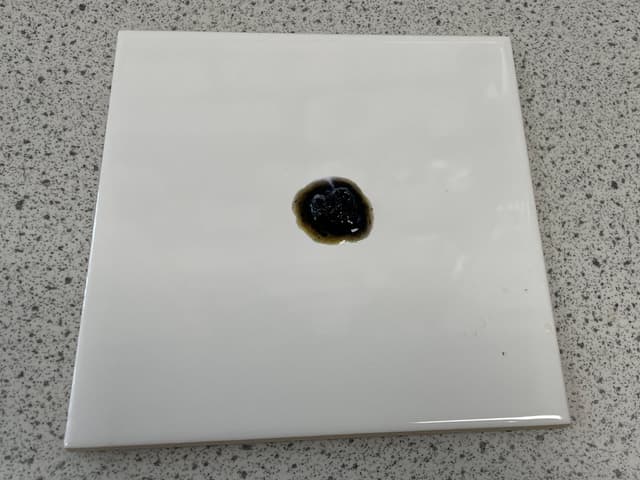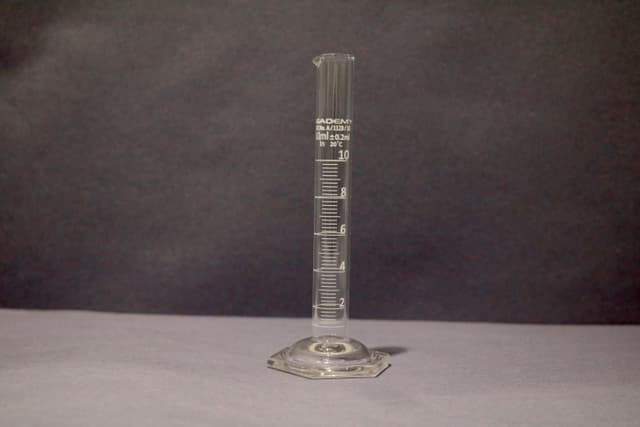Myths about teaching can hold you back
- Year 10
- Edexcel
- Higher
The effect of pH on the rate of an enzyme reaction: practical
I can carry out an investigation into the effect of changing pH on the rate of an enzyme reaction.
- Year 10
- Edexcel
- Higher
The effect of pH on the rate of an enzyme reaction: practical
I can carry out an investigation into the effect of changing pH on the rate of an enzyme reaction.
These resources were made for remote use during the pandemic, not classroom teaching.
Switch to our new teaching resources now - designed by teachers and leading subject experts, and tested in classrooms.
Lesson details
Key learning points
- Safe use of materials and apparatus.
- Accurate measurement of reactants and reagents.
- Control of temperature using a water bath or electric heater.
- Continuous sampling of reaction mixture and testing with iodine for the presence of starch.
- Sampling at accurately timed intervals.
Keywords
Rate of reaction - How fast a chemical reaction occurs.
PH - A measure of how acidic or alkaline a solution is.
Amylase - An enzyme that breaks down starch into maltose (a type of sugar).
Starch - A carbohydrate, which is a polysaccharide (a polymer of sugar).
Continuous sampling - A method that involves taking regular and frequent samples.
Common misconception
Mistakes are often made when preparing the practical, for instance which samples go into which test tubes, or carrying out the practical, such as exactly when to take the continuous sample.
The correct approach to preparing and completing this method accurately and carefully is discussed throughout, with quick checks at key points and the opportunity to try it for themselves.
To help you plan your year 10 combined science lesson on: The effect of pH on the rate of an enzyme reaction: practical, download all teaching resources for free and adapt to suit your pupils' needs...
To help you plan your year 10 combined science lesson on: The effect of pH on the rate of an enzyme reaction: practical, download all teaching resources for free and adapt to suit your pupils' needs.
The starter quiz will activate and check your pupils' prior knowledge, with versions available both with and without answers in PDF format.
We use learning cycles to break down learning into key concepts or ideas linked to the learning outcome. Each learning cycle features explanations with checks for understanding and practice tasks with feedback. All of this is found in our slide decks, ready for you to download and edit. The practice tasks are also available as printable worksheets and some lessons have additional materials with extra material you might need for teaching the lesson.
The assessment exit quiz will test your pupils' understanding of the key learning points.
Our video is a tool for planning, showing how other teachers might teach the lesson, offering helpful tips, modelled explanations and inspiration for your own delivery in the classroom. Plus, you can set it as homework or revision for pupils and keep their learning on track by sharing an online pupil version of this lesson.
Explore more key stage 4 combined science lessons from the Biological molecules and enzymes unit, dive into the full secondary combined science curriculum, or learn more about lesson planning.

Equipment
Content guidance
- Risk assessment required - equipment
Supervision
Adult supervision required
Licence
Prior knowledge starter quiz
6 Questions
Q1.What is starch made of?
Q2.What is the enzyme that catalyses the breakdown of starch into maltose?
Q3.Match the variable to its description for the investigation 'Investigating the effect of changing pH on the rate of enzyme reaction'.
independent variable
control variable
dependent variable
Q4.Is this a positive or negative test for starch?

Q5.Who best describes what rate of reaction is?




Q6.Order these steps to show how you would carry out an investigation into the effect of changing temperature on the rate of an enzyme-controlled reaction.
Assessment exit quiz
6 Questions
Q1.Which piece of equipment would you use in this practical to heat the test tubes of starch and amylase to a specific temperature?
Q2.What is collecting data at accurately timed intervals know as?
Q3.What is formed when amylase digests starch?
Q4.What is this piece of equipment called?

Q5.Iodine solution is an irritant. What piece of safety equipment should be warn when using it?
Q6.What is this piece of equipment used for?



